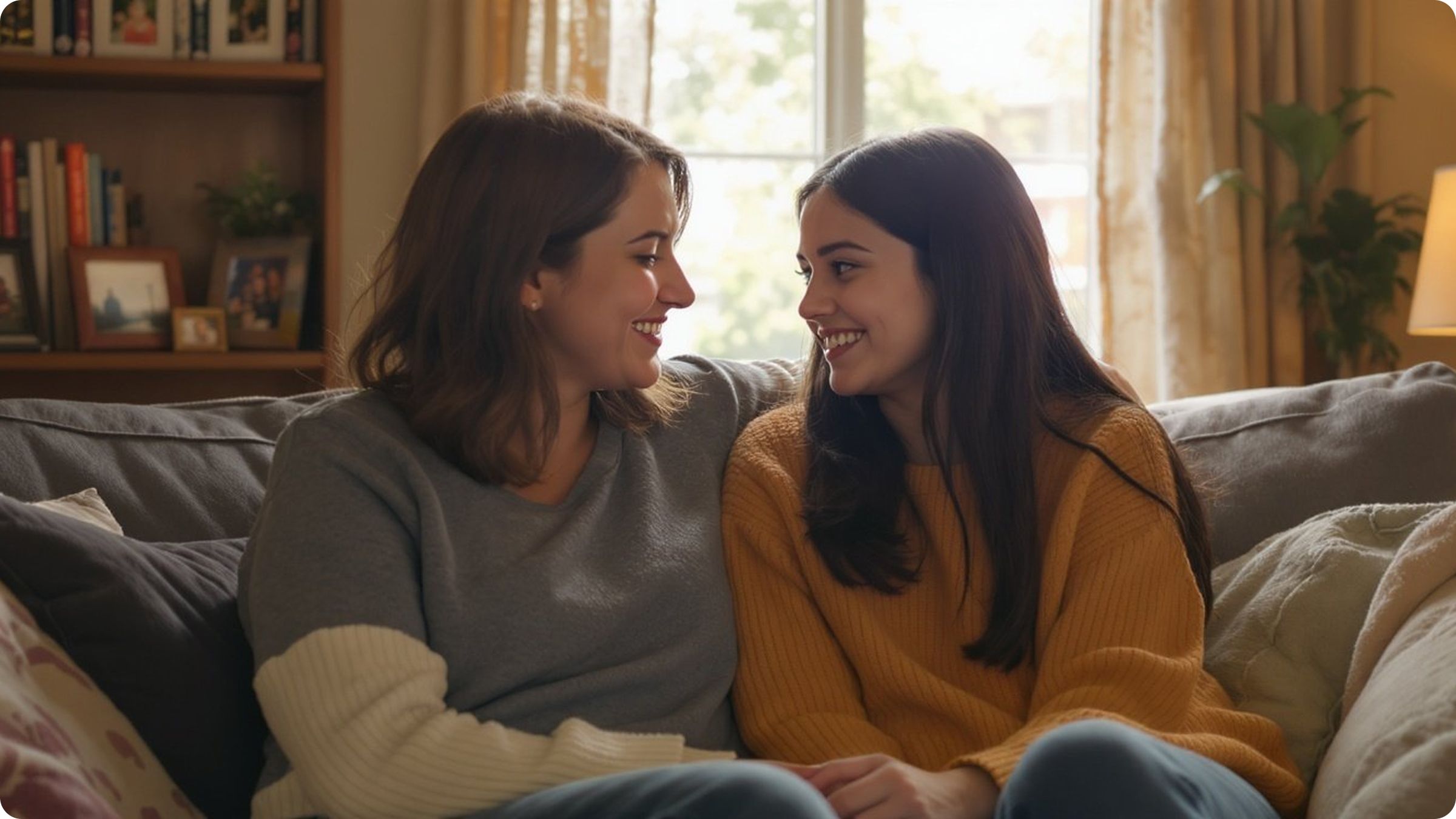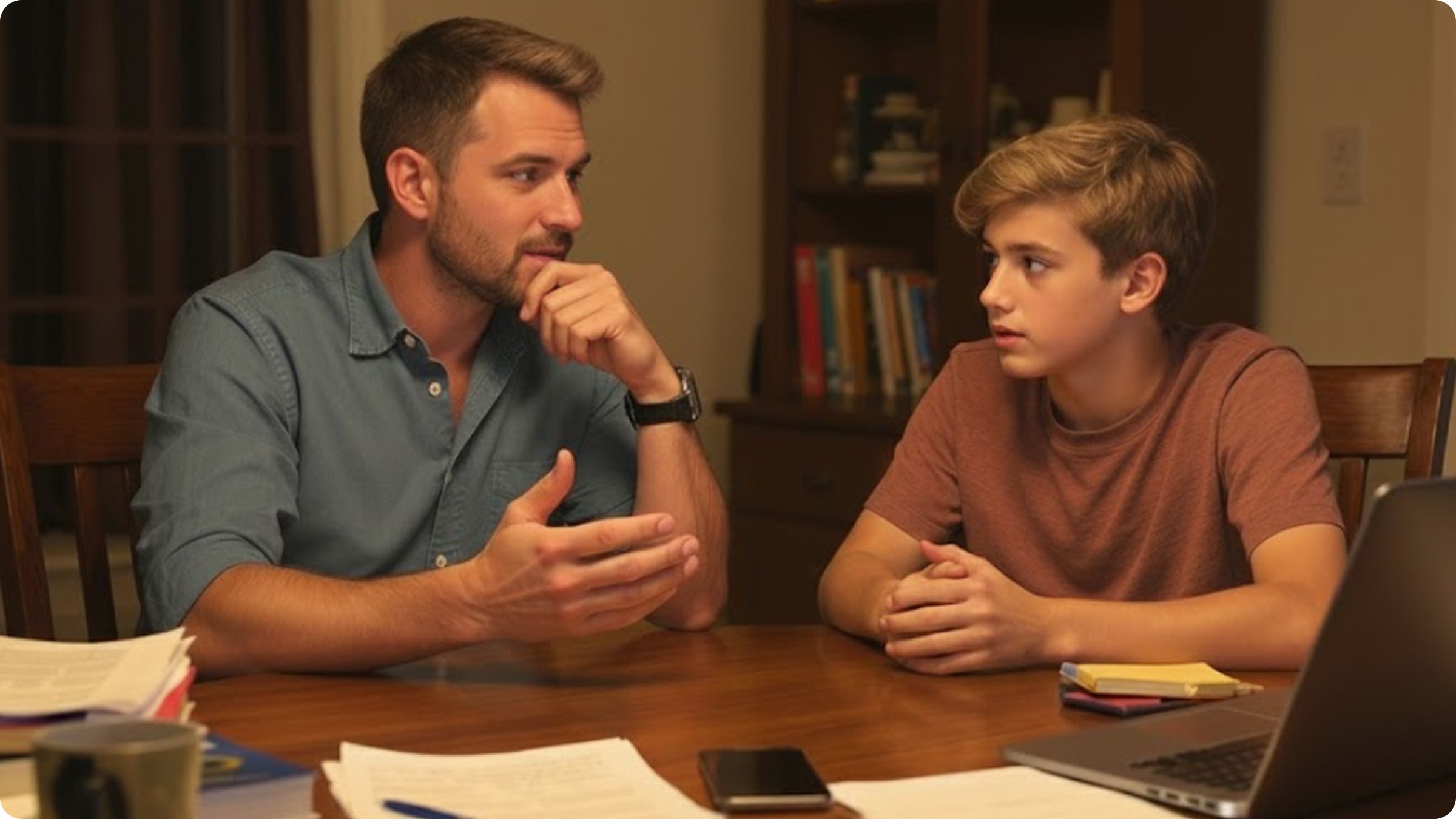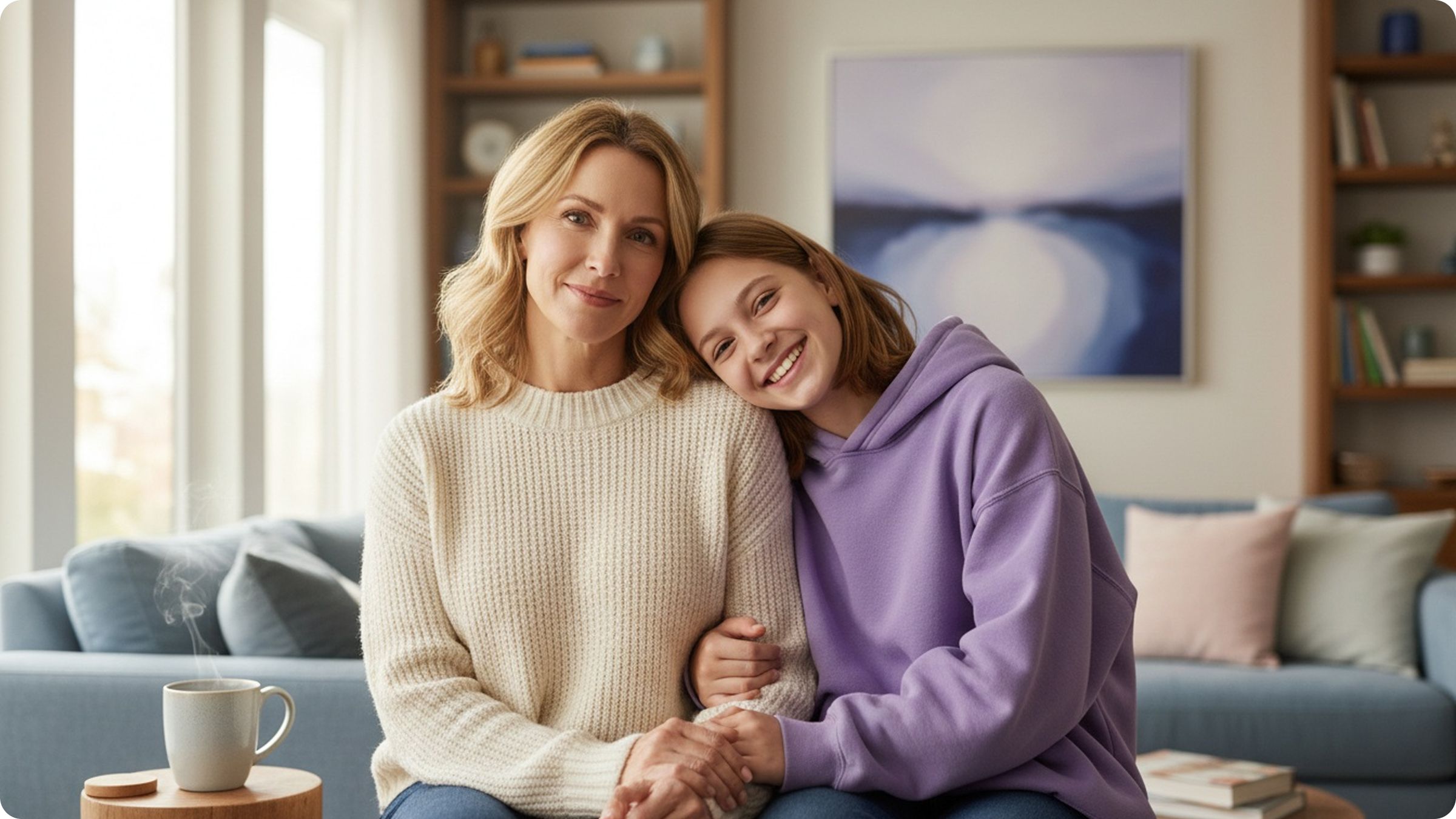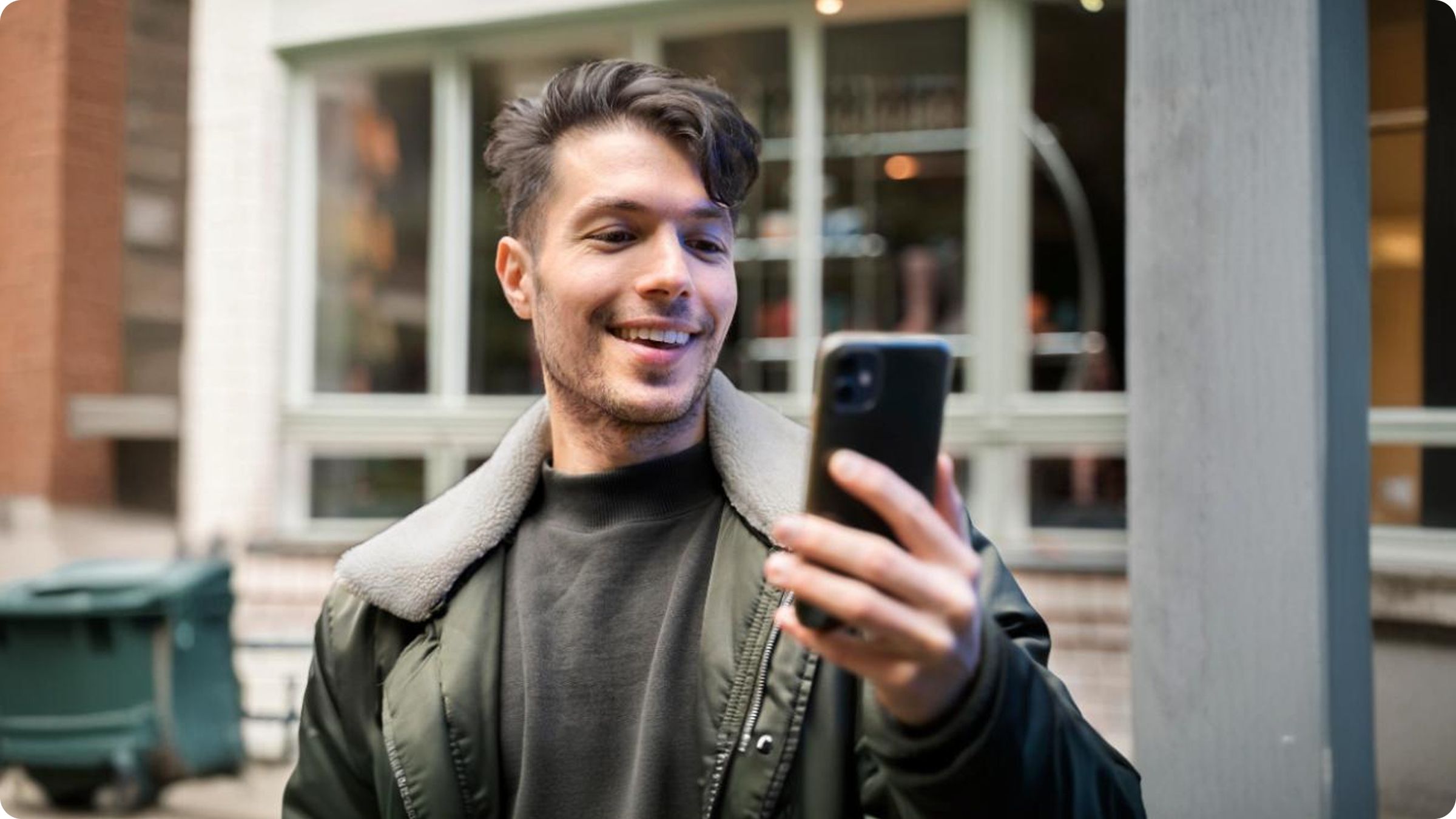I'm Carolina Moreno, a dental hygienist and single mom in Houston. Two months ago, I made tacos for Sunday dinner—Camila's favorite—and she barely touched her plate. "Not hungry," she mumbled, eyes glued to her phone. I didn't think much of it at first. But then it kept happening. Breakfast, lunch, dinner. Her jeans started hanging off her hips. Her face looked thinner, hollow. One morning, I watched her step on the bathroom scale three times, and when she saw me, she burst into tears. "I'm still not thin enough, Mom." That's when I knew something was terribly wrong.
Meet the Moreno Family Story
Saving my daughter from the algorithm that weaponized her insecurities
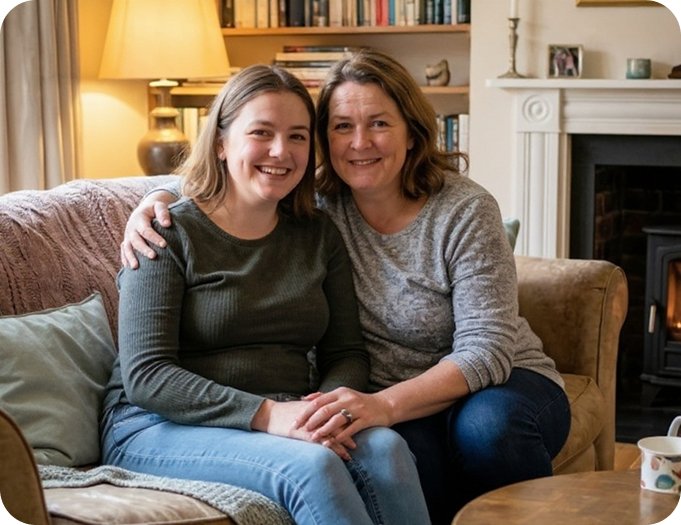
Our Family's Struggle

Challenge
Camila had always been self-conscious about her weight. She wasn't overweight—just a little curvier than other girls—but kids can be cruel. A few classmates made comments last year, and it stuck with her. Then, almost overnight, everything spiraled. She stopped eating lunch at school. She'd lock herself in her room, scrolling on her phone for hours. In two months, she lost 15 pounds. Her energy disappeared. When I tried to talk, she'd snap: "You don't understand! I need to lose more!" One night, I knocked on her door and asked to see what she was watching. She hesitated, then handed it over. Video after video of impossibly thin girls: "What I Eat in a Day—500 calories, maybe less." The comments were worse: "Goals!" "I wish I had your discipline." The algorithm was feeding her sickness.

Solution
I downloaded FamiSafe the next morning and connected it to Camila's phone. The TikTok History showed everything: hours of extreme diet content, body-checking videos, "thinspiration" posts. The keyword alerts flagged searches like "500 calorie diet" and "lose 10 pounds fast." I didn't yell or take her phone away. Instead, I sat her down at the kitchen table, showed her the data, and said, "This isn't healthy, mija. And I'm scared." She cried. She admitted she felt trapped—couldn't stop watching, couldn't stop comparing herself. Together, we set limits: 45 minutes of TikTok per day, with keyword alerts on. I reached out to her school counselor, who referred us to a therapist. Slowly, Camila started eating again. Last week, she told me she'd deleted toxic accounts: "They weren't helping me, Mom. They were hurting me." Hearing that was everything.
The Moreno Family Today



